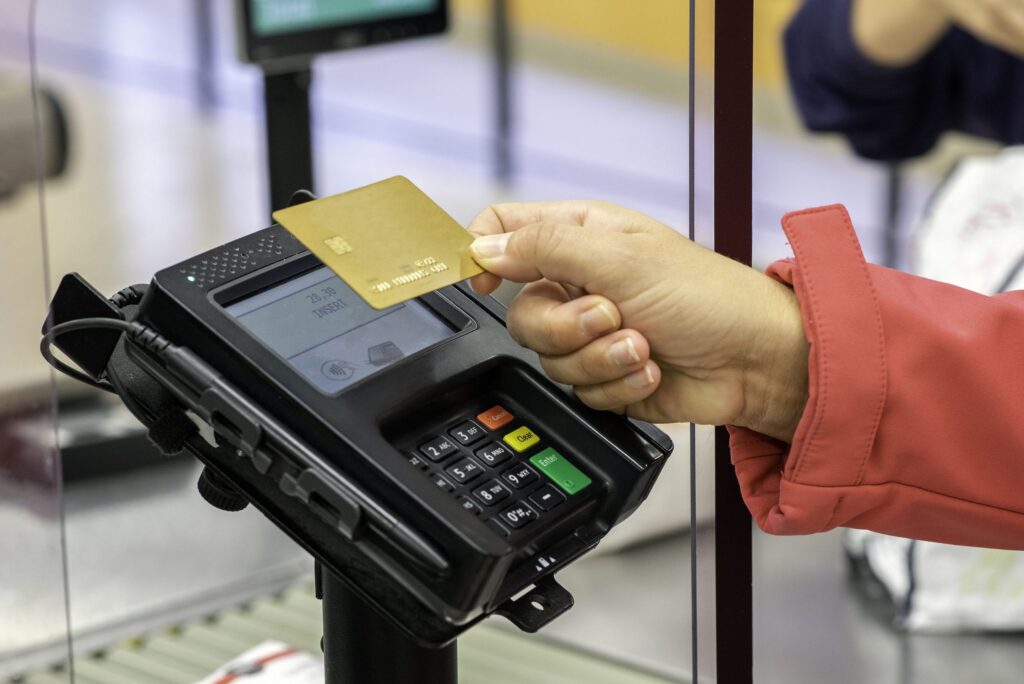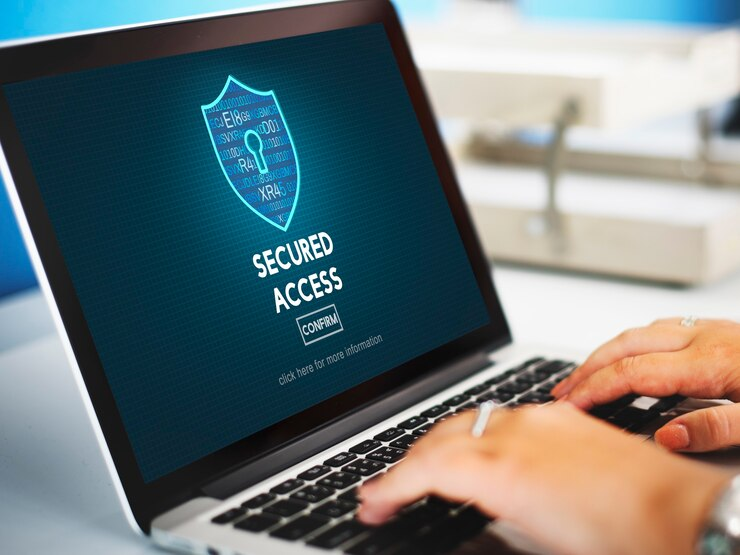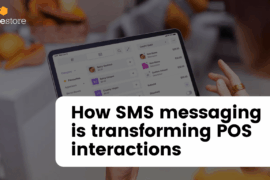Many enterprises currently use virtual private networks (VPNs). In a recent study, 41 percent of 1,047 surveyed companies said they use such networks.
VPNs help fortify security for business networks and connections. They ensure confidentiality by concealing IP addresses. As a result, cybercriminals and third-party entities won’t be able to access your retail transactions and browsing histories.
Retail establishments are lucrative targets for cybercriminals because of their high-volume customer data and transactions. Integrating a VPN can strengthen your enterprise’s cybersecurity against potential intrusions.
VPN routers are one method to embed VPNs into your retail store’s network.
This guide will explore VPN routers, their advantages for retail stores, and the cybersecurity threats they can help mitigate. We will also provide your VPN router options and functions to evaluate when choosing providers.
Understanding VPN for routers
VPN for routers employs VPN service capabilities within Wi-Fi routers. This configuration has encryption that reroutes data transmissions through secure servers. This rerouting helps shield your retail’s internet activities from unauthorized access.
These types of routers can accommodate various devices, including laptops, desktops, smartphones, and smart TVs.
However, there are VPN routers with VPN functions that do not have pre-installed VPN services. They can instead be manually configured.
Nonetheless, various providers offer options with pre-installed VPN services. These routers with pre-installed services are designed for straightforward installation. Providers can even set them up for you.
Benefits of VPN for routers
Incorporating VPN routers into your retail security network can bring the following benefits:
Protect multiple devices and networks simultaneously
Because VPNs support multiple network connections, they can extend their features to all internet-connected devices.
This broad protection helps ensure the security of your customer transactions. It also provides your staff with the confidence to handle sensitive transaction information.
Compatibility and convenience
VPN routers don’t compel you to make frequent logins. You can enter the login credentials once during the setup and connect automatically. This one-time setup eliminates the need to reconnect whenever you go online.
Many VPN routers are also compatible with various operating systems. If you have devices with iOS, Windows, macOS, Android, or Linux operating systems, you can connect them all in one VPN router.
Furthermore, they can ensure uniform security protocols across devices. This way, you won’t need to configure VPNs into each operating system.
Bypass ISP throttling
Internet service providers (ISPs) sometimes intentionally limit connection speeds. This connection slowdown is called throttling.
Your ISP throttles your internet speeds to manage network traffic or reduce congestion. They may target your transactions and online activities during customer influxes.
This throttling can result in significant downtime, impact transaction speeds, and cause potential transaction failures. These issues can lead to negative customer experiences.
Fortunately, VPN routers can evade throttling. By masking your IP addresses, they can make it challenging for your ISP to identify your data and detect when you exceed the connection threshold.
Enhance market research by accessing geo-restricted web content
Some pieces of online content have geographical restrictions. VPNs can sidestep these limitations, letting you access geo-restricted information valuable to your retail business.
For instance, you can browse competitor websites worldwide. This broad access provides extensive research opportunities to scale up your growth and marketing approaches.
This advantage also helps you access geo-specific advertising channels to understand regional market trends. It allows you to comply with regional regulations and tailor your tactics to local consumers and culture.
Retail cybersecurity threats a VPN router can intercept
The retail cyberattacks VPN routers can intercept include:
POS system hacking
Cybercriminals exploit retail point-of-sale (POS) systems to steal customer data and financial information, such as addresses and credit card numbers.

However, with a VPN router, you can encrypt your retail store’s inventory. This encryption turns the information into secret codes, making it challenging for attackers to infiltrate your POS servers.
Data breaches
Data breaches are caused by vulnerabilities in usage and technical systems. They expose confidential information to unauthorized parties.
Brute force attacks are the most frequent data breach method. Hackers attempt all potential combinations until they decipher your passwords correctly.
VPN routers can block these attempts with encryption. Compromising your passwords can be challenging for third parties because your business information is transformed into codes.
Ransomware schemes
Ransomware attackers block access to your system, data, or networks until you pay a ransom.
Although simple ransomware may lock systems without damaging files, advanced versions may leak your retail information. For complete protection, retailers should also consider immutable backups against ransomware, which ensure data cannot be altered or deleted by attackers.
However, with VPN routers’ encryption, system infiltrations for ransomware can be challenging for attackers.
DDoS attacks
Distributed denial-of-service (DDoS) attacks disrupt your retail website’s traffic. As a result, your site will be inaccessible for browsing and checkout.
However, VPN routers can thwart these disruptions by concealing your IP addresses. With hidden IP addresses, hackers can have difficulty locating your network and targeting your site.
Remember that VPNs alone cannot prevent these cyberattacks. They’re only one element of a comprehensive cybersecurity system that employs unique, hard-to-guess passwords, multi-factor authentication, regular system updates, antivirus software, and staff training.

VPN router options
Your options for installing VPN on routers include:
Option 1: Pre-flashed or pre-configured VPN routers
Pre-flashed VPN routers are plug-and-play routers. They have VPN firmware configurations that don’t require flashing, which is the complex process of VPN firmware installation.
Although these routers have upfront costs, you don’t have to install the firmware manually. Your provider will also take care of the installation process.
The price markup can also be a worthwhile long-term investment because you receive the complete features from the get-go.
Option 2: Out-of-the-box VPN routers
Out-of-the-box VPN routers have manufacturer-default firmware. They can support various VPN connections without replacing or modifying the existing firmware.
These types of VPN for routers offer flexibility when choosing providers. They’re also ideal for users who want to switch to different servers or adjust settings according to security requirements.
Features to check when selecting a VPN router provider
VPN router providers are not similar. Here are the features you must check to ensure the provider aligns with your needs:
Speed and security
Internet speed is crucial to your retail transactions.
Unfortunately, low-quality VPNs can hamper your connections due to increased latency. Therefore, your provider must have a track record of consistent optimal speed when connecting to different servers.
Moreover, choosing a provider with industry-recognized security functions can make your network impenetrable is essential. On top of this, you must ensure that independent auditors regularly audit your chosen provider.
Ease of setup and use
Retail managers, owners, and staff juggle multiple responsibilities—from inventory management and auditing to cybersecurity checkups.
For this reason, it’s best to prioritize providers with pre-configured VPN routers and user-friendly operating systems. They help save time and resources by providing easy access to multiple devices and eliminating complex setups.
You can also go for providers that configure VPNs on existing routers. This way, you can strengthen your network security without discarding a still-functioning router.
Further, these professionals ensure the setups are correct to prevent potential technical issues and security loopholes. A domain analyzer can also be used during this stage to identify misconfigured DNS records, outdated certificates, or other vulnerabilities that may compromise your VPN router’s security posture.
Robust encryption standard
Encryption standards are essential VPN features that conceal your retail store’s information.
A provider with robust encryption helps ensure maximum privacy while facilitating transactions.
For example, providers with a 256-bit key advanced encryption standard (AES) offer one of the toughest possible encryptions. This standard is almost unbreachable, even with brute force and the fastest computers.
Other robust encryption standards available are 128-bit and 192-bit.
Multiple servers, locations, and connections
Multiple servers can improve your bandwidth because there’s less load per server. Plus, the higher the number of servers, the faster your connection can be.
At the same time, you have other servers to connect to when one server goes down. Various locations can even provide more options to spoof your virtual networks.
Moreover, if your retail store is large, VPN routers with multiple connections should be your priority. This way, you won’t need to disconnect from one device to connect to another frequently.
VPN protocols
VPN protocols indicate the approaches by which your data is enclosed and sent through private networks and servers.
Some protocols have heavy encryption standards to strengthen safety. These standards often result in slower data delivery and connections.
Meanwhile, others have less complex encryption standards that can deliver data faster. However, they usually have less secure connections.
Examples of VPN security protocols to evaluate include:
- PPTP protocol: A dated VPN protocol designed by Microsoft. It has a fast connection but is susceptible to security loopholes.
- OpenVPN protocol: This protocol is highly configurable because of its security and versatility.
- SSTP protocol: Another Microsoft-designed protocol that supports AES-256 encryption.
- L2TP/IPsec protocol: A tunneling protocol paired with IPsec for authentication and encryption capabilities.
- WireGuard protocol: An easy to set up and maintain protocol. It’s also one of the protocols with the fastest connections.
- IKEv2 protocol: This protocol allows seamless switching between different networks and can reestablish connections after temporary interruptions.
Logging policies (data collection)
Logging policies state how providers collect and store your activities while connected to the VPN.
These policies have four data collection methods:
- No logs: Providers don’t collect and identify your activities
- Connection logs: Providers will collect connection logs that record your sessions but not activities
- Activity or usage logs: Providers collect your activity details while connected to the VPN
- Aggregated or anonymous logs: Providers will collect data without linking back to you
Responsive customer support and accessible payment avenues
VPNs are not immune to technical issues like bugs and connection throttles. Responsive customer support is essential to address these problems, particularly if you’re non-tech-savvy.
Thus, choose a provider you can contact directly through emails, social media, live chat, and phone support.
Also, providers with various payment integrations ensure accessibility and convenience. This way, you can quickly pay using your preferred payment channel.
Additional functions
Additional functions worth checking for availability when choosing a provider include:
- Double VPN: Encrypts your data twice by routing your network through two servers
- Kill Switch: Automatically blocks your internet access when the VPN connection drops unexpectedly
- Threat Protection: Blocks ads and malicious websites before they can infect your systems
Invest in a VPN router today
VPN routers are one method to strengthen retail security. In addition to network protection, they can enhance customer service and optimize marketing tactics.
However, you shouldn’t overlook VPN routers’ potential pitfalls. You must be aware that they can have compatibility issues, slow speeds, and costly setups.
Still, incorporating them into your cybersecurity systems helps strengthen data protection and maintain privacy.
As such, you ensure your commitment to safeguarding customer information.




